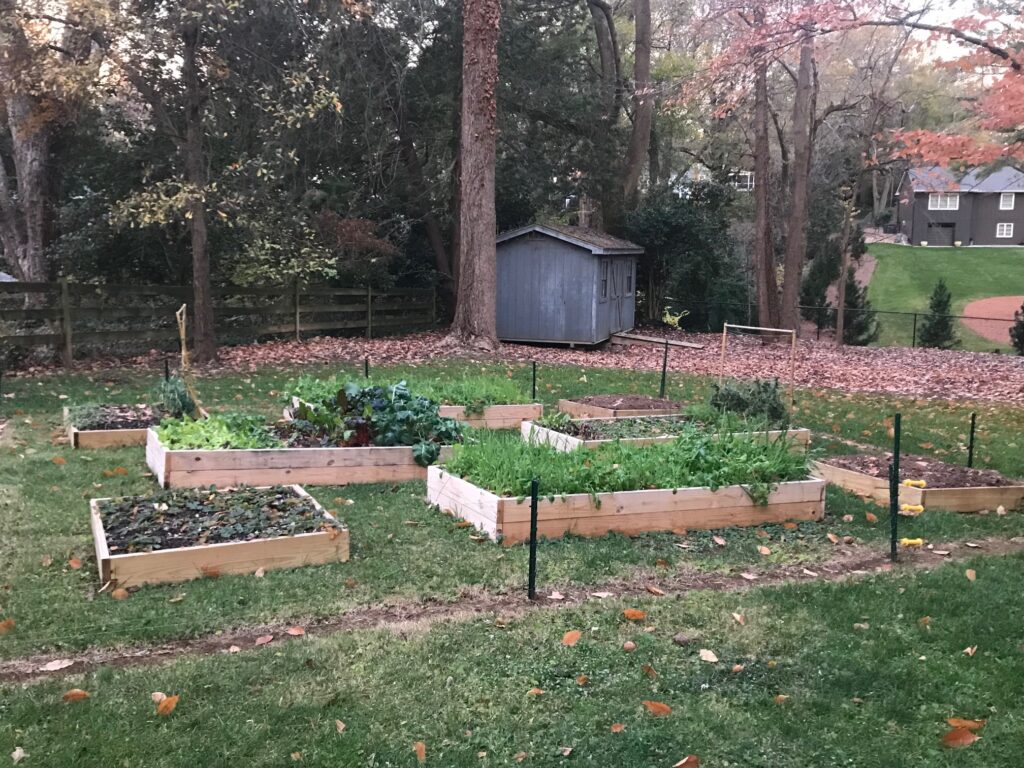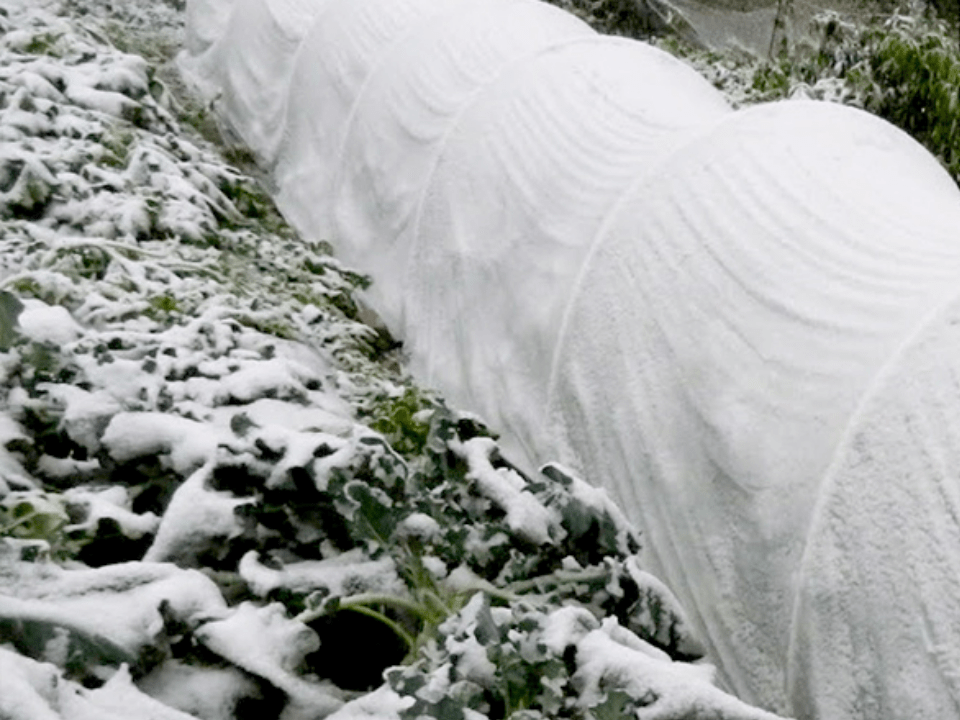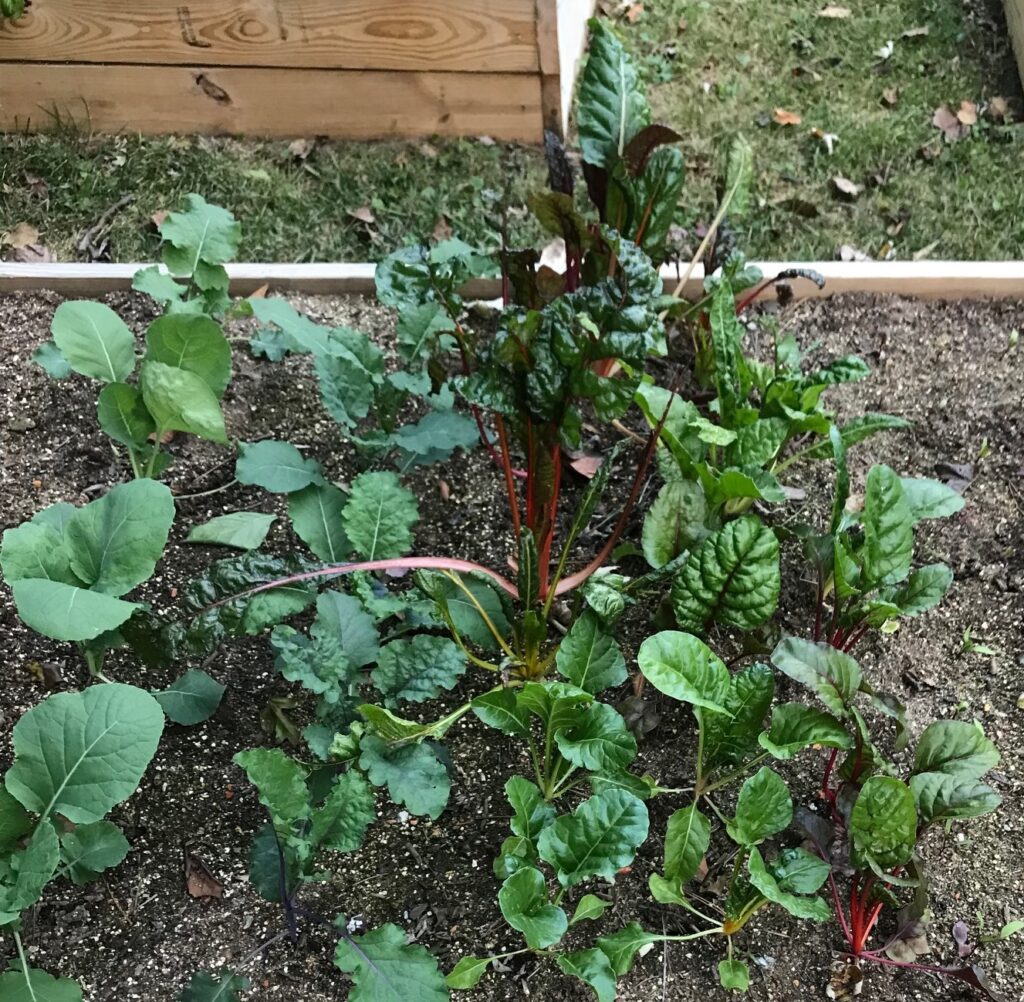Welcome back to our “Year in the Organic Garden Series!” In October, we planted bulbs and perennials, as well as mulched and tested our soil. If you missed the post, or want to refresh your memory, please take a look at October in the Organic Garden.

In November, we’ll likely experience our first frost of the season. We will cover crop protection techniques and more. As always, we welcome your own comments, questions and contributions to help make this an even more useful resource for our readers.
Managing Frosts
Usually our first frost is near the middle of the month. Many of your Fall Garden crops can handle a touch of frost, and some will even get sweeter. Eventually, you’ll benefit from covering your crops with the aptly named Frost Row Cover to extend your season. These are heavier than Insect Row Covers and do a better job of trapping the heat from the soil while still allowing sunlight and rain to penetrate. Simply remove the cover to harvest and replace when conditions call for it.

Managing Leaves
You’ve likely got a lot of leaves to deal with this month. Yes, it’s a bit of a chore, but this is also a great opportunity!
Some suggestions and recommendations:
- Mow leaves and let the small pieces stay on the lawn…free nutrition!
- When there are too many to mow you can shred them. Shredded leaves are a great mulch. If you don’t have anything to mulch, just find a nice area in the yard to pile them up and they will compost over time
- Blow excess leaves into a “natural” area of your yard. Great organic matter to help suppress weeds in the spring and improve your soil.
One note of caution. It’s best to avoid black walnut leaves in your mulch as they can impair plant growth when included in compost. Don’t worry too much about a few
leaves here and there, but avoid a full pile of composted black walnut leaves.

Other Things to Do this Month
If you didn’t get a chance in October, there is still plenty of time to:
- Plant edible bulbs (Garlic, Onion and Shallots)
- Plant Spring Flowering Bulbs (Tulips, Daffodils, Crocus, etc.)
- Plant perennials: including fruit, shade and ornamental trees!
- Mulch! This does double duty of insulating the roots of your plants while slowly breaking down to provide nutrition
Cut back your Asparagus:
- Once ferns turn brown, they can be cut back to ground level
- Add a layer of compost and mulch to help insulate for the Winter nap
Cut back your Raspberries & Blackberries
- Cains that fruited this last year in Summer & Fall can be cut back to the ground
- Some Raspberries and Blackberries only fruit on second-year canes, be careful to leave those that didn’t fruit if you aren’t sure what type yours is
- If you’re sure that your berries fruit on first-year canes, go ahead and cut everything back to the ground
- Add a layer of compost and mulch here too
Add a layer of Compost and Mulch to your beds.
- Over the course of Winter, these will break down and help replenish nutrients for your Spring plantings
Looking Forward to December!
December is a great month to finish up any tasks that haven’t been crossed off the list yet. It’s also a great time to take stock of the past year and to prepare for the next go around!
Thank you for taking the time to read through this guide. We welcome your comments and questions. Happy organic gardening!

Leave a Reply